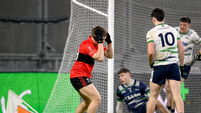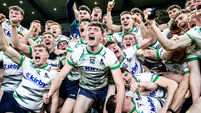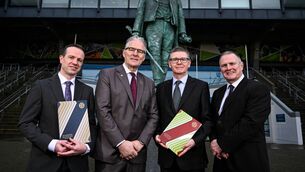David Tubridy at peace with being a part of Clare football's storied history

Last Sunday on his way up to Dublin, David Tubridy, while dressed in his Sunday best, made a pitstop in Moneygall. Walking through the glass doors of Obama Plaza to pay for his diesel, he noticed from all their tracksuits there was a team amidst the masses.
Shortly after he copped who they were, one of them similarly identified him. On his way back out to the courtyard, a car pulled up in front of him and an Offaly footballer stuck out his head. “You’re going to the game afterall, yeah?!” Tubridy could tell from the smile that there was a joke in there somewhere but at first struggled to find it.











